Covid-19: German meatpackers improve hiring procedures
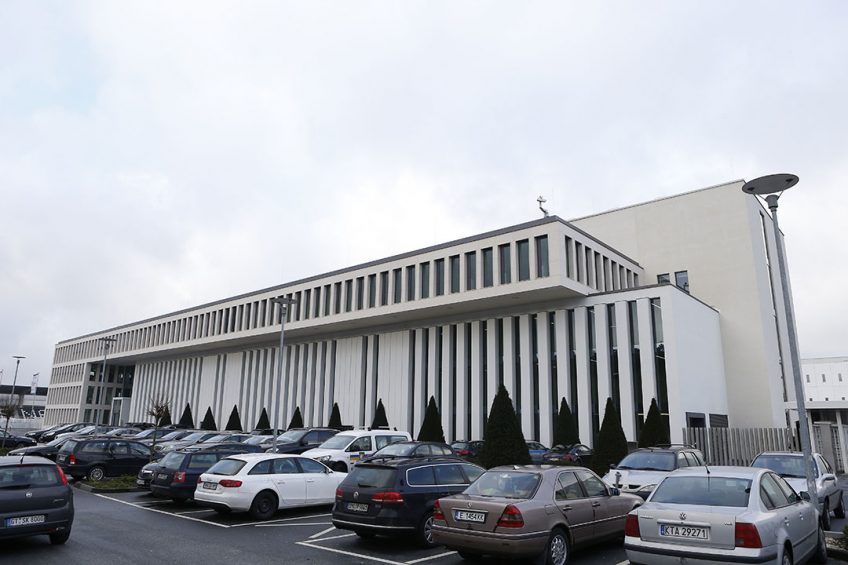
The ventilation system at the German pig slaughterhouse Tönnies appears to have played a major role in the spread of Covid-19 amongst employees.
That is the most important outcome of a research to the massive outbreak of Covid-19 at Tönnies in the German town Rheda-Wiedenbrück in North Rhine Westphalia state. Last week, the meat plant, the largest in Germany with 20,000 pigs processed/day, was closed down temporarily as a result.
The climate control system is entirely based on air circulation. Together with low temperatures, high humidity levels and many people working hard and thus breathing heavily, the climate control system will spread the virus rapidly.
Prof Martin Exner of the Robert Koch Institute, an expert in hygiene, is in charge of the research. He said that every time new things are being learned – things that did not attract attention in the past. The research will continue, as the outbreak is a result of a complex of causes.
The latest figures show that 1,550 employees of the Tönnies plant have been found infected. In total the plant employs 7,000 people.
Changing employee hiring system
Both Tönnies as well as another German meatpacker, Westfleisch, have announced to change its working methods per the end of the year and all employees will be hired by the company itself. The companies announced this on Tuesday, June 23.
External employees at the slaughterline
In practice, hiring staff through agencies comes down to hiring external employees, mostly from Eastern Europe, for the work at the slaughterline. The system got heavily criticised during the Covid-19 outbreaks this month, as the relatively poor housing of these employees might have been accelerating the infection rate among these workers.
Tönnies stated that in this context it will work on improvement of foreign workers’ housing conditions. Westfleisch has introduced a 10-step plan to address labour and housing conditions.
With their announcements, the companies are ahead of the federal government in Berlin – which aims to ban this business model using agencies.
German regions in lockdown
In the meantime, the German regions Gütersloh and Warendorf around the pork plant in Rheda-Wiedenbrück have gone into a new lockdown until at least June 30. The authorities have made clear that these extra measures were needed to avoid further spread of the virus. The lockdown is not as strict as earlier this year, but it does affect schools and kindergartens.
Anybody who was interested could opt for a voluntary Covid-19 which led to a queue of over 2km as can be seen in the tweet below.
Aan het werk in Gütersloh. De regio is in lockdown vanwege een grote coronauitbraak. Iedereen die wil kan zich laten testen. De rij is meer dan 2 km lang, en gaat dus buiten beeld nog eindeloos door. De mensen staan er al sinds 08.00 vanmorgen. pic.twitter.com/y4Imu3PgHI
— Liedeke Morssinkhof (@Liedeke83) June 24, 2020
Most recent counts point to 6,650 employees having been checked for Covid-19 of which 1,553 have tested positive. Most of the contaminated persons worked at the cutting line. Outside of the slaughter plant, another 24 people have been infected in this area.
No state support for Tönnies
The German federal health minister, Hubertus Heil, has already stated that Tönnies is liable for all damage caused by the Covid-19. He said, “Anybody breaking the rules and causing the spread of Covid-19 and as a result hijacking an entire region, will have to be made liable.” He called it unlikely that the company would receive state support in times of crisis.
Deepest crisis in Tönnies’ 50-year history
Owner Clemens Tönnies was quoted to say that it was the deepest crisis in the company’s 50-year history. And more is yet to come as China has stopped importing meat from the plant in Rheda-Wiedenbrück, because of Covid-19. The meatpacker itself chose not to respond to this news.

For pig trade, the developments mean that the situation is less secure, which might lead to price decreases in the long run. Currently one of the major price indicators points to a price of € 1.69/kg slaughterweight. In the short term no immediate price drop is expected as the general meat market is still positive.
Netherlands: reduction of slaughter speed
In the meantime, the Netherlands’ parliament voted in favour of a mandatory reduction of slaughterline speed, to allow workers to do their work in safety. That happens at a time when slaughter capacity is already compromised.

Covid-19 Up-date
What impact is the pandemic having on the global pig sector and how are they dealing with it.
Poultry plants infected with Covid-19
Elsewhere in Europe, 2 poultry slaughter plants emerged as being hit by Covid-19 as well. This included a Geestland turkey plant in Wildeshausen, Germany and a 2 Sisters chicken slaughterhouse in Llangefni, Wales, UK.
 Beheer
Beheer

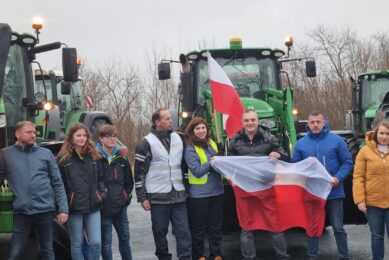
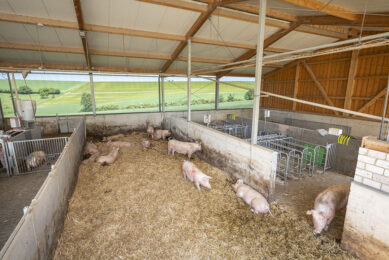
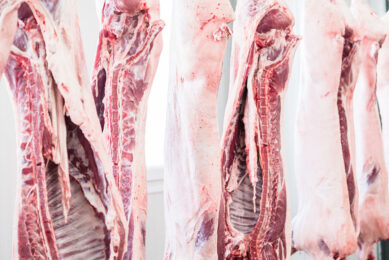
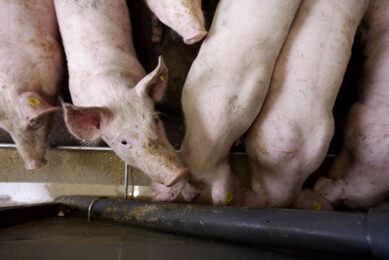



 WP Admin
WP Admin  Bewerk bericht
Bewerk bericht